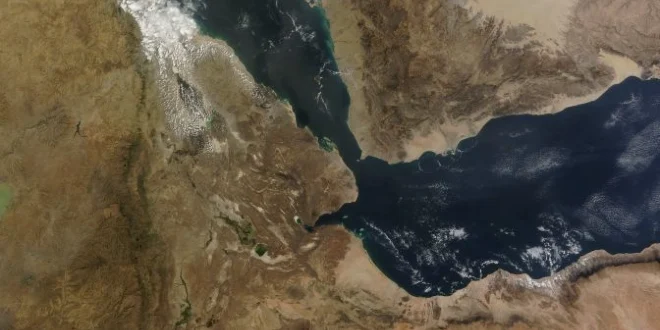The recent surge in attacks by the Iran-backed Houthi rebels in the Red Sea has heightened tensions in this crucial maritime trade corridor and raised concerns about the potential regional spillage of Yemen’s ongoing conflict.
Amid the conflict between Israel and Hamas militants in Gaza, Yemen’s Houthi rebels have escalated their activities, threatening to attack ships bound for Israeli ports and intensifying their raids. A notable incident involved a missile strike on a Norwegian-flagged tanker, which the Houthis claimed as part of their military campaign against Israel.
In a bold move last month, the Houthis seized a cargo vessel linked to Israel, the Galaxy Leader, along with its 25 international crew members. The Houthis, who control a significant portion of Yemen but lack international recognition, are aligned with Iran’s “axis of resistance” against Israel. They justify their actions as a defense of Palestinians against Israeli actions in Gaza and have launched drones and missiles towards Israel.
U.S. and French warships in the Red Sea have intercepted and destroyed several Houthi missiles and drones. The Red Sea serves as a vital link between the Indian Ocean and the Mediterranean Sea, with the strategic Strait of Bab-el-Mandeb, known as the “Gate of Tears,” being a key passage for global shipping and energy supplies.
Camille Lons from the European Council on Foreign Relations and Fabian Hinz from the International Institute for Strategic Studies have both highlighted the growing threat and the Houthis’ capacity to inflict considerable damage.
While warships in the Red Sea are equipped to respond to threats, commercial vessels lack such defenses, raising concerns about their vulnerability.
The extent of Iran’s support and involvement with the Houthi rebels remains a subject of debate. While Saudi Arabia and the United States have accused Iran of supplying the Houthis with weapons, Tehran denies these allegations. The Houthis claim they manufacture their drones domestically, though analysts point to the presence of Iranian components in these devices.
Experts like Franck Mermier from the French National Centre for Scientific Research emphasize the Houthis’ autonomy and primarily Yemeni character, distinguishing them from other Iranian-backed groups like Hezbollah.
The Houthis, adherents of Zaidism, a branch of Shia Islam, have been a significant force in Yemen since before the current conflict, which escalated in 2014 with their seizure of Sanaa. This led to a Saudi-led military intervention in 2015 to support Yemen’s internationally-recognized government.
Israeli National Security Adviser Tzachi Hanegbi has called for international action against the Houthis, warning of potential Israeli intervention if necessary.
The situation remains volatile, with analysts like Noam Raydan from the Washington Institute for Near East Policy noting that some shipping companies are now opting for longer, costlier routes to avoid the risk posed by Houthi attacks in the Red Sea.


